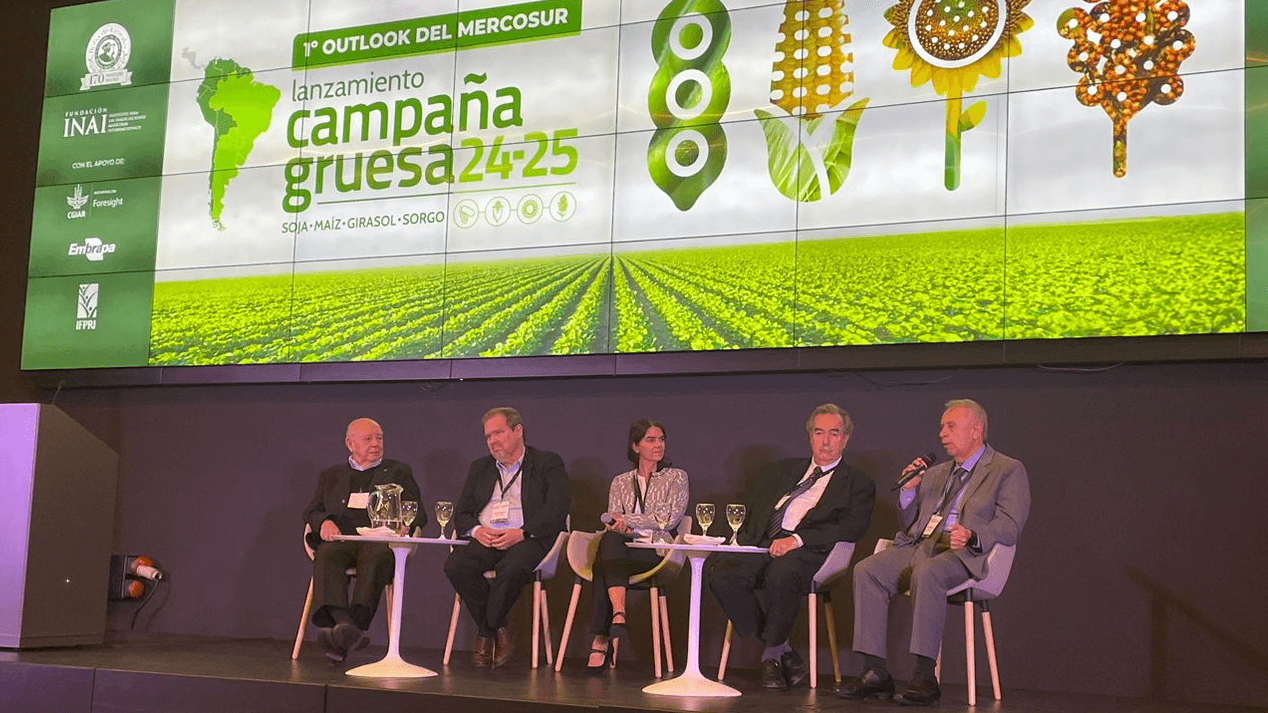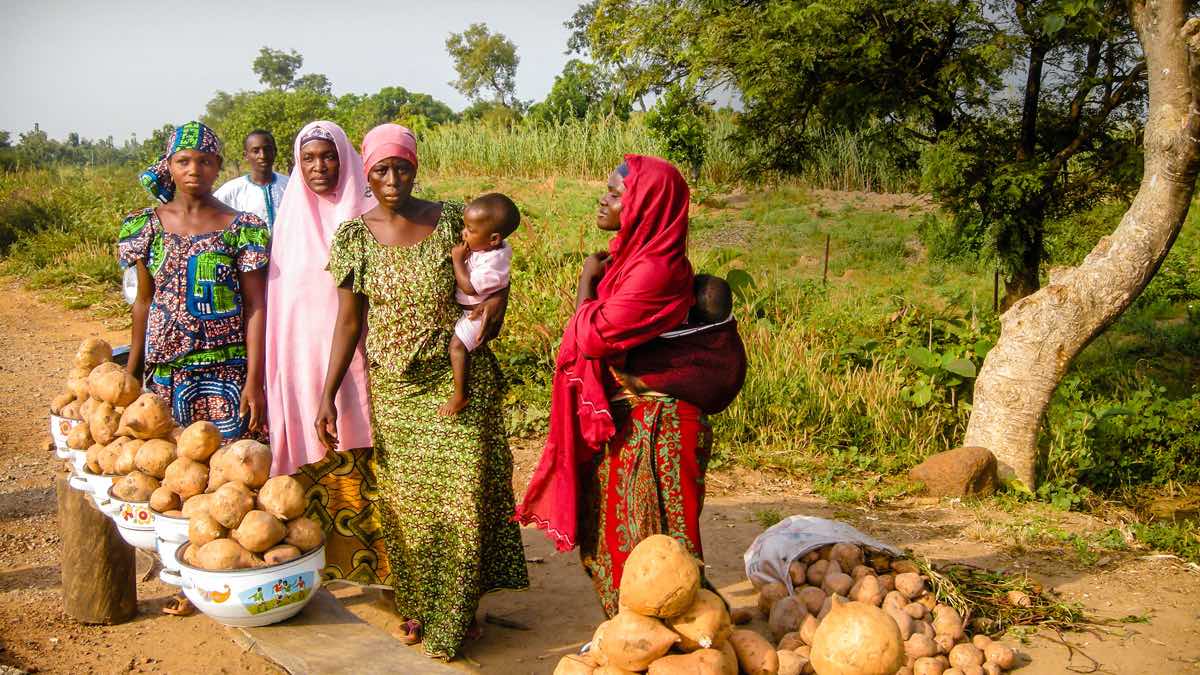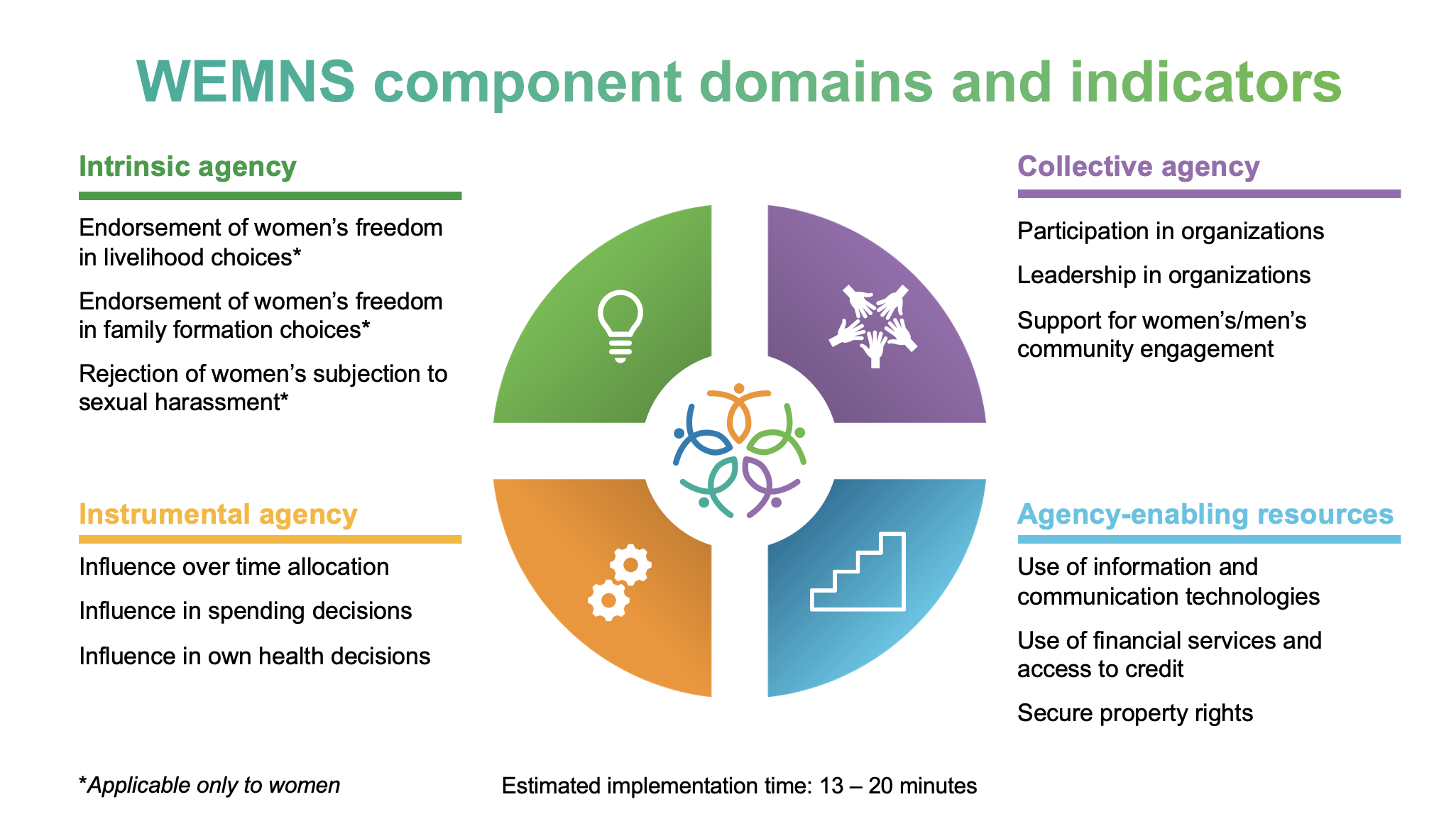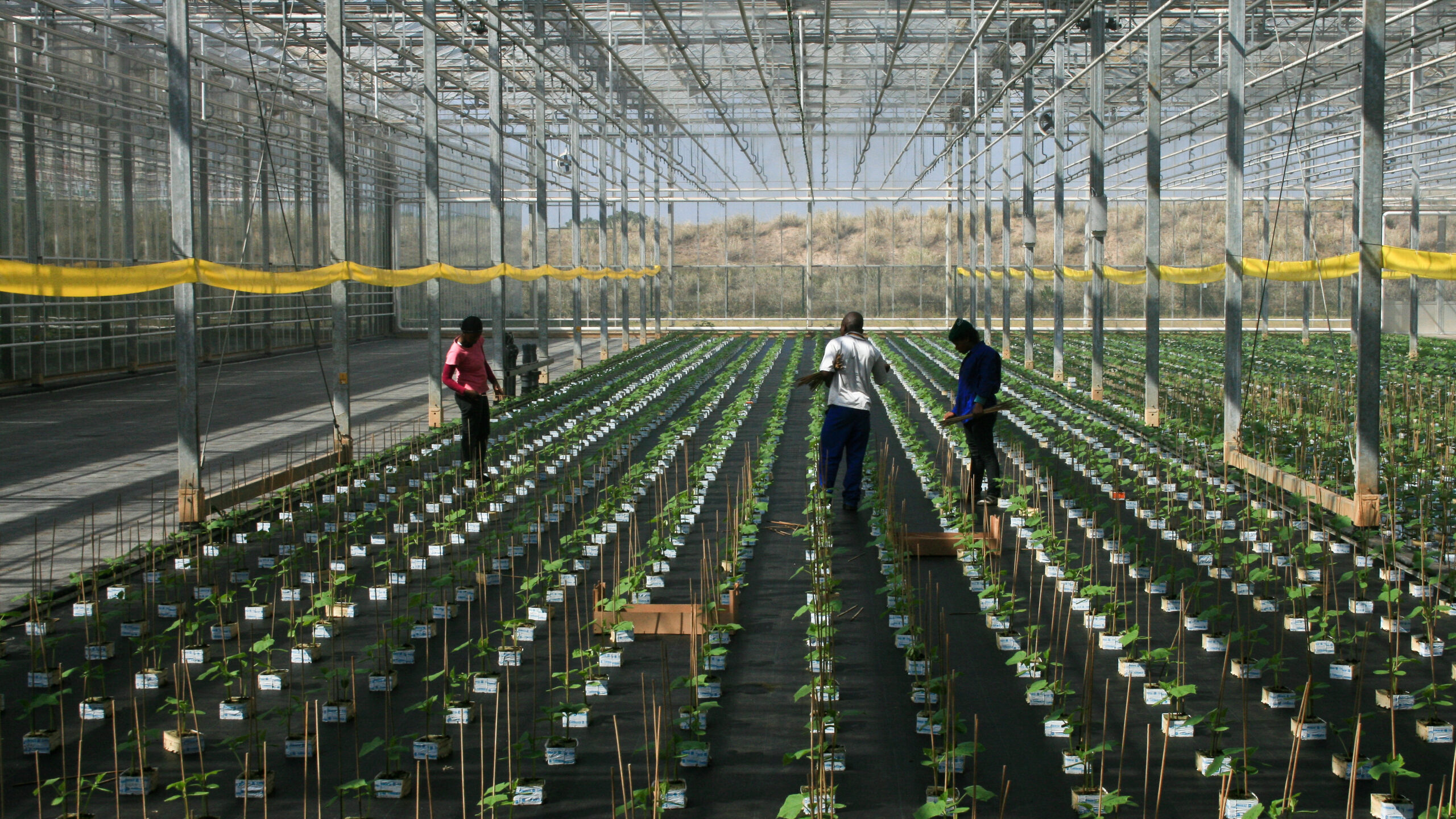Mercosur (the Southern Common Market of South American countries) plays an important role in global food security as a major exporter of grains and other food products—and its members face a number of serious challenges. Climate change, market instability, and protectionist policies threaten to disrupt agricultural production and trade. At the same time, these countries facing growing pressure to reduce the environmental impacts of production and better align their activities with the Sustainable Development Goals (SDGs).
These challenges and possible solutions were a focus of the Campaña Gruesa 24-25: Primer Outlook del Mercosur launch event on September 25 at the Buenos Aires Bolsa de Cereales (Grain Exchange). The event marked the start of the summer growing season in the Southern Cone, which generally lasts from October through April. The Mercosur Outlook initiative provides forward-looking analysis of agricultural production, demand, and trade for the block over the next ten years. The first report—developed by Bolsa de Cereales, Fundación INAI and Embrapa (the Brazilian Agricultural Research Foundation) with the support of the CGIAR Foresight Initiative and IFPRI—provides baseline analysis of a business-as-usual scenario, which will be the foundation for future reports. The first report will be published in the coming months.
Nicolás Jorge of Fundación INAI provided highlights of the report, noting strong potential growth in production and trade for major commodities. In the next ten years, annual cereal and oilseed production is expected to grow by an additional 100 million metric tons, a 23% increase. Most of this growth will come from increased production of corn, soy, and wheat. Looking ahead, Jorge stressed the increasing role of productivity growth vs. expansion of planted area, especially in relation to environmental issues. Continued turbulence in global markets also poses a major challenge. While prices are generally expected to trend downward, geopolitical tensions, climate change, conflict and other shocks may trigger sudden fluctuations, exposing producers and traders to greater risk that may be discourage them from investing in technologies to improve efficiency and sustainability.
In the face of this uncertainty, Valeria Piñeiro, IFPRI Regional Representative for the Latin America and Caribbean Region and Senior Research Coordinator, noted the need for greater foresight and analysis capacity, a primary focus of the CGIAR Foresight Initiative. “We aim to have the data, tools, and capacity to produce evidence for policymakers so they can make decisions in pursuit of sustainable and inclusive production,” Piñeiro said. She called for continued collaboration across countries and experts to build research capacity—an approach that would allow for the validation of disaggregated results, the compilation of relevant information across contexts, and the development interactive tools to explore projections in greater detail. The Mercosur Outlook is a major step toward building a regional network of researchers with the tools and ability to produce projections for a wide range of scenarios at the global, regional, and national levels.
In the following round table discussion, moderated by Piñeiro, experts and policymakers from across the region discussed the future of agricultural policy in Mercosur. A major point of concern was promoting sustainability by reducing greenhouse gas emissions and protecting the region’s wealth of forested areas.
Paulo do Carmo Martins, economics researcher and advisor to the president of Embrapa, outlined several approaches taken in his home country, Brazil. First is facilitating the adoption of evidence-based technologies and practices in food production that reduce deforestation and forest degradation. Second is monitoring deforestation activity using satellite technology to ensure compliance with existing regulations and trade agreements, which limit production from recently deforested areas. Third is implementing policies and incentives to direct finance toward investment in regenerative practices and sustainable intensification technologies. Finally, he noted the need for reliable and consistent measurement techniques to accurately determine and compare the environmental impacts of food production across regions.
Manuel Ferreira Brusquetti, President of MF Economics and Investment in Paraguay, also stressed the need for strategies to promote technology adoption. As global commodity prices have fallen, he said, producers are receiving less revenue, which has limited their ability to adopt new technologies. “Financing becomes key, not only as direct investment to the producer but also to knowledge, to universities, and research organization,” he said. Such investment is needed to continue improving technologies, making agriculture more sustainable while increasing production.
Marcelo Regúnaga, Argentinian member of the Producing Countries from the Southern Cone Group (GPS), noted that encouraging sustainable production depends on creating a policy environment that fosters economic stability and the rule of law across the Mercosur countries to ensure an even playing field. In addition to echoing calls for investment in technology and innovation, he emphasized the importance of promoting trade through investment in infrastructure and international cooperation.
Washington Durán, of the Chamber of Industries of Uruguay (CIU), commented that Mercosur has many opportunities to establish trade agreements if the member countries can coordinate in negotiations. Alternatively, when the block is unable to negotiate collectively, one country may be able to establish an agreement that benefits the rest indirectly. This not only applies to trade agreements but also to sustainability, sanitary, and phytosanitary measures, which protect consumers but can also pose challenges for producers if poorly designed. Agrifood trade systems are critical to ensuring food security, expanding access to healthy diets, and building resilience in the global food system. As a major global food producer, Mercosur plays a critical role in this system and this block’s policies have implications for the rest of the world. Moving forward, the Outlook initiative aims to establish a network of researchers across the MERCOSUR countries with the tools and capacity to conduct national foresight analysis independently while also collaborating to share insights and coordinate policy decisions.
Juan Pablo Gianatiempo is a Research Analyst with IFPRI’s Markets, Trade, and Institutions (MTI) Unit; Brian McNamara is an MTI Program Manager.







